‘My work is about representing underrepresented communities in unconventional ways’
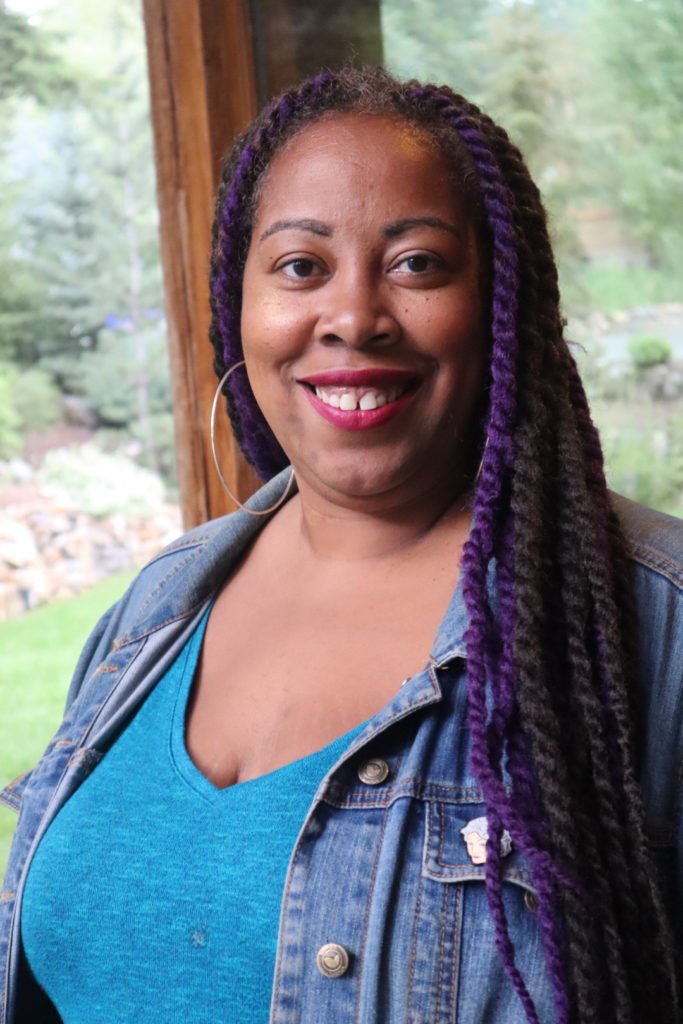
Photos courtesy of Angela Tucker.
For filmmaker Angela Tucker, an SIT Study Abroad arts and culture semester in Ghana in the ’90s proved pivotal. It was there, she says, that she first got behind the camera.
“It was a formative time in life,” she says. As a theater and African-American Studies major at Wesleyan, she found Ghanaian ideas about where art and culture reside different in some interesting ways. “In America, you go to a play or watch a film and that’s what art is, where art is. That’s a very western idea. But someplace like Ghana—art and culture is everywhere.”
Angela says her SIT program was focused on the idea of going somewhere in the country, having an experience, then writing about it. “We did something with the national theater in Accra—a performance art thing. The actors would go into areas where women were selling skin-bleaching cream, and they’d provoke a conversation about bleaching.”
It’s about Black joy—and that’s radical in a world that wants to show Black pain.
When the students went to observe, Angela ended up with the job of filming. “I had never done anything like that! It was my introduction to filming something.” Angela went from Wesleyan to Columbia, where she received an MFA in Film. The native New Yorker now resides in New Orleans.
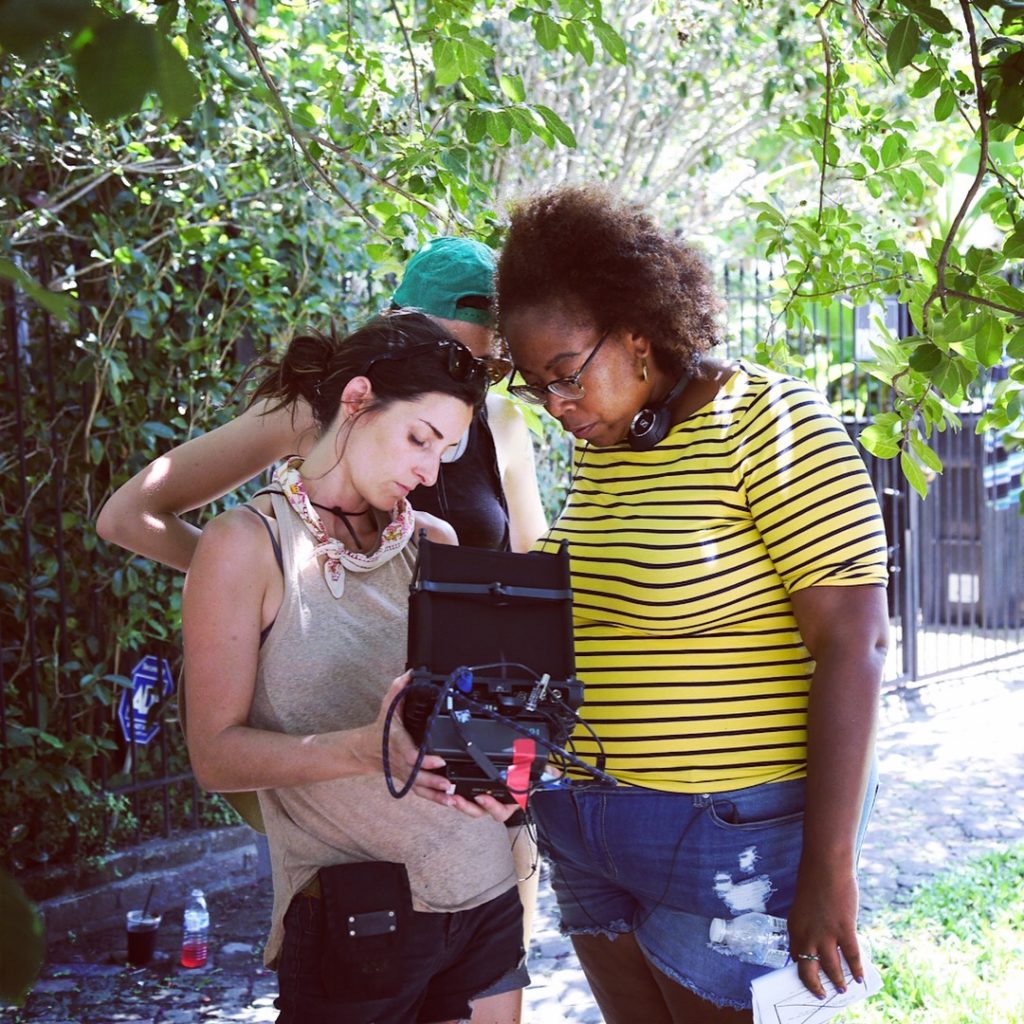
These days, as an Emmy and Webby award-winner, it’s pretty easy to find Angela’s work. Christmas 2022 saw the debut of her first Lifetime Christmas movie, A New Orleans Noel. And she’s done many documentaries, including All Skinfolk, Ain’t Kinfolk on PBS’ Reel South; Black Folk Don’t, an intriguing web series of shorts including interviews about perceptions of what is and isn’t “Black”; and (A)sexual, a look at people for whom sexual attraction is not a part of life.
No matter the format or length, Angela says there’s a common thread running through everything she does: “My work is about representing underrepresented communities in unconventional ways. I think my Christmas movie had a place in my work as much as a documentary about forced sterilization. It’s about representation, and the importance of showing the experiences of Black people.”
She puts a finer point on it, too. “It’s about Black joy—and that’s radical in a world that wants to show Black pain.”
Black Folk Don’t is a good example of how that difference manifests in her work. The series is often funny, and consistently insightful. In it she examines, primarily through interviews, things that are often considered outside the usual Black cultural parameters, like, for instance, yoga.
From that premise, Angela says, “I just thought, ‘How do you make something that explores stereotypes?’ So many are problematic, and some are based in truth.”
Many filmmakers reside primarily in the world of narrative feature or the world of documentaries. Angela has explored both and finds each rewarding in its own way. “What I love about doing a documentary is that you can keep moving it along yourself; you don’t need a big entity to give you money. Life-wise, that’s really nice, to have a lot of control over what you’re doing. But with documentaries, you also have to give over to whatever happens.”
With narrative films, she says, there’s a different kind of control. “There’s a lot of time that goes into writing and planning, and then the experience of making it is actually a very short experience.” That kind of shorter experience, she says, has been “lighter. It’s given me the strength and stamina to do the other work.”
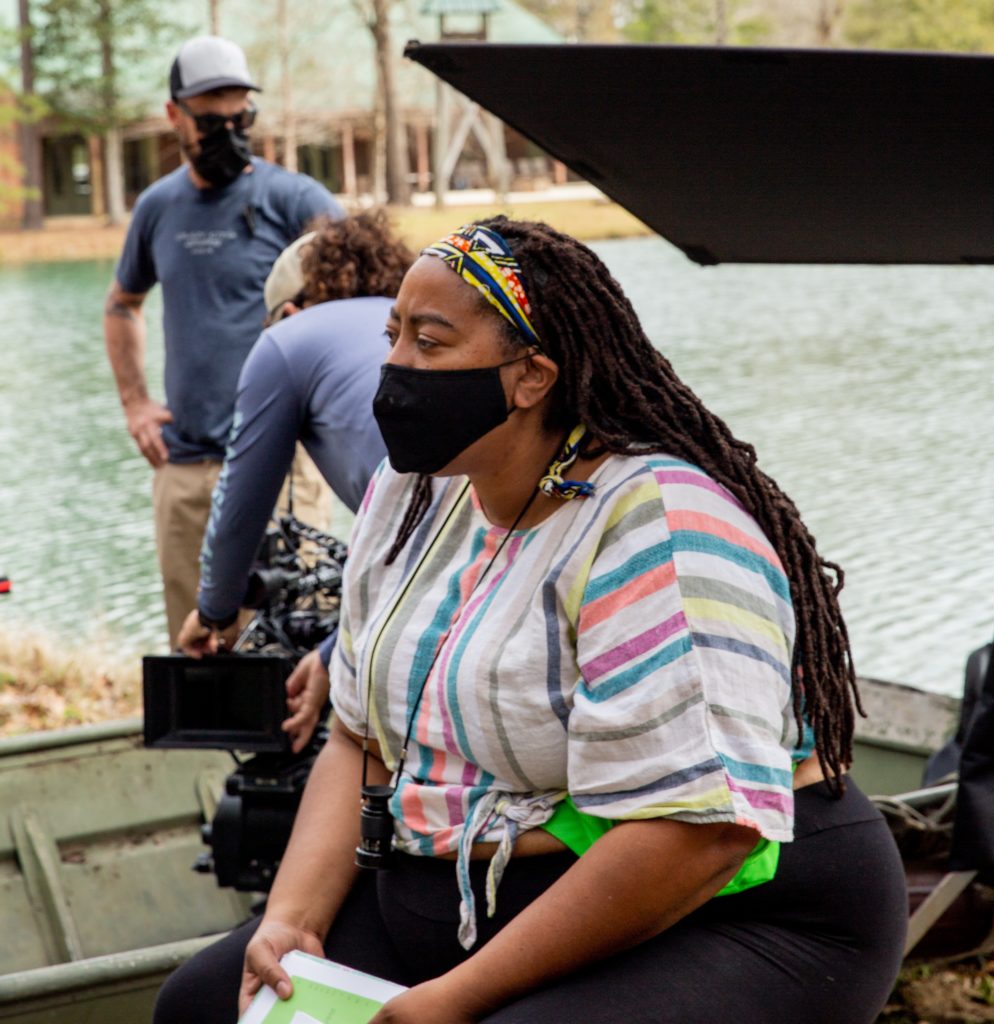
When you spend time with her work, you may notice a through-line of an aesthetic sort, too. There’s a somewhat similar look throughout. And that, of course, is intentional. “The lighting of brown skin—making brown skin look beautiful—it’s often about finding a crew and a team that knows how to do that.
“I also think about color palette a lot. I can’t always control that, though. I think going to film school for fiction was probably good, in that I didn’t come at documentary from the perspective of being a journalist. I came to it from having to understand look and feel and the aesthetic piece first. That’s always on my mind.”
The recent arrival of New Orleans Noel may well help Angela reach more people and realize more opportunities in all the varieties of work she pursues. The chance to make a film for Lifetime, she says, came about through a New Orleans-based producer who’d pitched a Christmas movie. Lifetime, she explains, wanted a Black writer and director, preferably based in Louisiana.
The lighting of brown skin—making brown skin look beautiful—it’s often about finding a crew and a team that knows how to do that.
The filming took longer because of the pandemic, but finally wrapped for a Christmas 2022 release. The experience was different in some highly specific ways, Angela says. “There’s a whole way of doing things. Lifetime—they have their own rules and trends. This year, for instance, there are a lot of movies about architects. But this film was always primarily a vehicle for Keisha Knight Pulliam.” And, it bears noting, New Orleans Noel also attracted a big name in singer Patti Labelle.
From here, this SIT alum hopes to open new doors and explore some intriguing new projects. “I’m working on a feature documentary about [trailblazing Texas congresswoman] Barbara Jordan. And another about holistic ways for women to take care of their bodies. And I’m working on something about an older love affair.” It’s all a through-line that stretches back to picking up a camera to film the arts and culture of Ghana with SIT.
New SIT programs for 2023 feature hip-hop in Ghana, diplomacy in South Africa, traditional medicine in Vietnam
School for International Training opens summer 2023 registration today with 39 extraordinary study abroad programs around the globe, including three new immersive opportunities in Ghana, South Africa, and Vietnam.

Ghana: Hip-Hop, Resilience, and Black Struggle examines how artists are using hip-hop to question traditional representations of Africa, imagine Africa’s future, and raise consciousness about globalization and (in)equality. In one of the most innovative countries in Africa, you will have the chance to study, engage, and perform with international hip-hop artists and activists such as Kojo Cue, Wiyaala, Cina Soul, M.anifest, Wanluv, Angel Maxine, Worlasi, and Koo Nimo. Excursions include Kumasi, the capital of the Ashanti Region and home to the biggest market in West Africa; Cape Coast, the first capital of Ghana and near two of the oldest sites of the transatlantic slave trade; and Tamale, where Islamic cultural practices flourish due to cultural influences from north of the Sahara. Earn six credits on this six-week program and participate in one of the most innovative study abroad experiences available today.
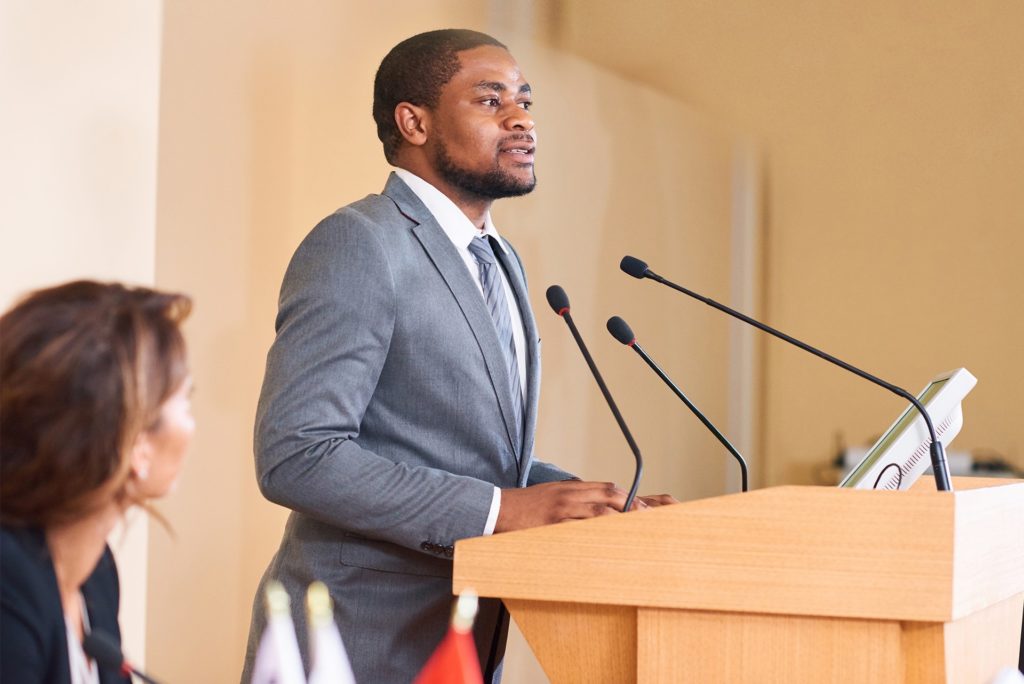
South Africa: Internship in Diplomacy, Politics, and International Relations is an exceptional, seven-week opportunity to explore career paths, meet diplomats and politicians, and enhance your understanding of non-western perspectives in the field of international relations. Your program base is Durban, one of South Africa’s most cosmopolitan cities with a rich fusion of African, western, and South Asian influences, and home to key historical figures like Albert Luthuli, the first African awarded the Nobel Prize for Peace, and Mahatma Gandhi. The core component of this program is a five-week internship with one of SIT’s partner civil society NGOs. These include the Africa Centre for the Constructive Resolution of Disputes, the Institute for Global Dialogue, Institute for Security Studies, and Centre for Conflict Resolution. On an excursion to Maputo, Mozambique, you’ll learn about the strong historical and political bonds between the two countries and the role Mozambique’s ruling party played in the liberation struggle against apartheid. You will also visit Johannesburg and close out this groundbreaking experience in Cape Town. Earn eight credits on this mind-opening, career-expanding summer opportunity.
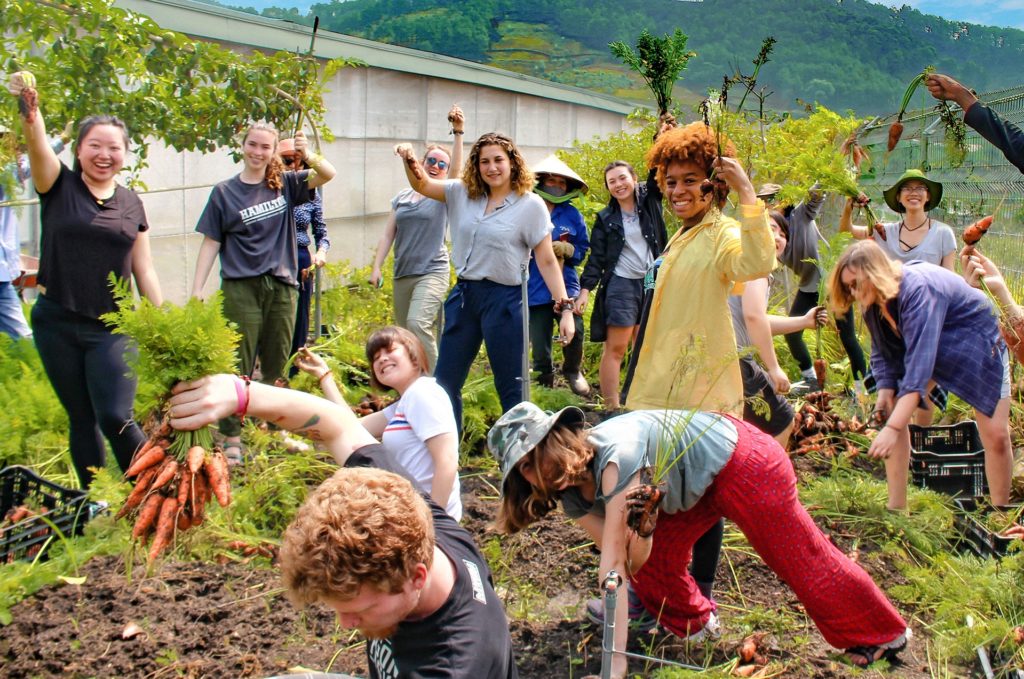
Vietnam: Traditional Medicine and Community Health provides an unparalleled look at the ancient yet flourishing practices of traditional Vietnamese and Chinese medicine. You will observe ethnic folk medicine practices, get an introduction to yoga philosophy and practice at a yoga training center, and visit a monastery to study the concepts of life and death in Buddhism, and participate in meditation sessions. Visit local public health and traditional Vietnamese medicine clinics in the Mekong Delta to compare rural community health practices to those in urban Ho Chi Minh City, the program’s base. Through visits with doctors, professors, and traditional medicine practitioners, you will gain a multidimensional view of healthcare and health delivery among diverse groups including marginalized and Indigenous populations. Choose to study either Vietnamese or Chinese language on this six-week, six-credit program that will broaden your understanding of medicine and enhance your career and academic prospects in the medical, health, NGO, or other fields.
These three innovative programs are among 39 immersive and virtual language and internship programs offered by SIT for the coming summer and available for registration through April 1, 2023. Click here to learn more about these and all of SIT’s “not your ordinary” program offerings.
Dr. Cheikh Thiam will lead SIT’s large and diverse portfolio of sub-Sahara programs
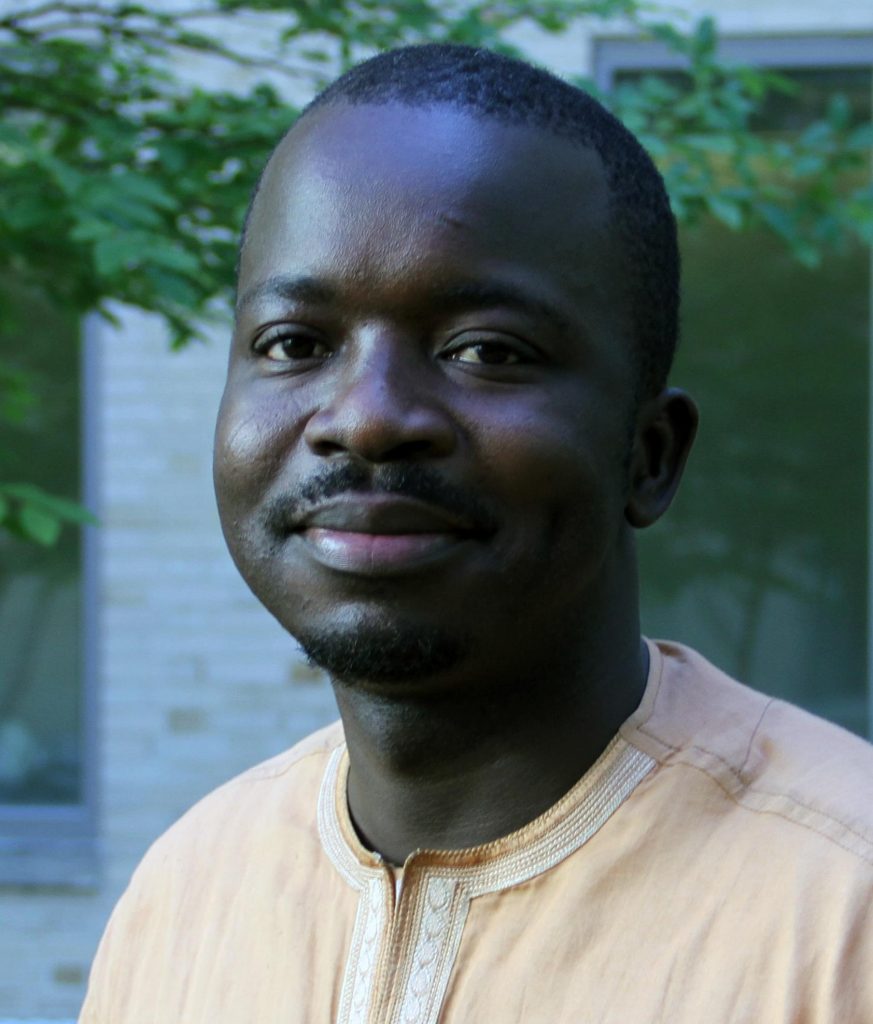
BRATTLEBORO, Vermont – Dr. Cheikh Thiam, academic director for SIT Study Abroad in Senegal, will become SIT academic dean for Africa South of the Sahara starting Jan. 1, 2020, School for International Training announced today.
Thiam co-leads SIT Study Abroad programs in Senegal focused on global security and religious pluralism, and designed a pioneering undergraduate program that explores how hip-hop artists and cultural influencers are redefining Africa’s future. “I am looking forward to taking on this expanded role at SIT, while drawing from my research examining collective imaginations of being and identity in Africa and the African diaspora in the colonial and postcolonial era,” said Thiam, who has directed study abroad programs in Senegal for the past 10 years.
As academic dean, Thiam will lead one of the broadest portfolios of programs in Africa of any U.S. institution. SIT’s multidisciplinary portfolio of accredited undergraduate programs covers nine sub-Saharan countries and encompasses subjects such as biodiversity and wildlife management, multiculturalism and human rights, health policy and social transformation, and even offers a journalism program. Several of SIT’s Global MA programs also have components based in Africa, including climate change in Tanzania, humanitarian assistance in Uganda, global health in Kenya, and international diplomacy in South Africa.
Cheikh’s outstanding scholarship and network of relationships across Africa and the United States, combined with his passion for student-centered study abroad classrooms, make him an outstanding addition to our leadership team.
— SIT President Dr. Sophia Howlett
Thiam brings to his new role a strong background in U.S. higher education. He has an MA and a PhD in comparative literature from Binghamton University, an MA in French from the University of Provence in Aix-en-Provence, as well as a BA from Université Cheikh Anta Diop in Dakar. He served as associate professor of African American studies, African studies, and French at The Ohio State University. He is the author of “Return to the Kingdom of Childhood: Re-envisioning the Legacy and Philosophical Relevance of Negritude,” published by Ohio State University Press in 2014.
Thiam also was the editor of Negritude Reloaded, a special issue of Journal on African Philosophy, an associate editor of Research in African Literatures, and has published widely in literature and philosophy journals such as Ethiopiques, West Africa Review, La Revue Africaine, La Revue du Graat, French Review, Research in African Literature, Dalhousie French Review, and Journal on African Philosophy. He recently completed a second book manuscript, “Epistemologies from the South: Negritude, Modernity, and the Idea of Africa.”
In announcing his appointment, SIT President Dr. Sophia Howlett said, “Cheikh’s outstanding scholarship and network of relationships across Africa and the United States, combined with his passion for student-centered study abroad classrooms, make him an exceptional addition to our leadership team.”
Thiam will join Howlett’s Council of Deans, a group that oversees SIT’s undergraduate programs, the SIT Graduate Institute, and SIT’s stable of more than 80 study abroad programs in Asia and the Pacific, Europe and the Middle East, Latin America, and the International Honors Program.
Thiam succeeds Dr. Daniel Lumonya, who has served as academic dean for the region since August 2015. Prior to that time, Lumonya was SIT academic director in Uganda. Lumonya completed his PhD in development sociology at Cornell University. “I have had the chance to work with Cheikh on our evolving programs in the region and I welcome the depth of experience he brings to this position,” Lumonya said.
Lumonya is leaving to pursue a career in research, teaching and community service from his country, Uganda. “I want to thank Dan for his dedicated work and stellar contributions to SIT, both as an academic director and dean,” Howlett said. “We will all miss him.”
Ousmane earned his PhD in 2002 at Cheikh Anta Diop University in Dakar where he has been teaching literature and translation. In addition to teaching courses at UCAD and teaching French for SIT, he has initiated important community development programs in and around Senegal, particularly related to sustainable development and building eco-communities. His teaching has been hailed by students as hands on and engaging.
Sidy has been teaching Wolof to American students for over twenty years. He received training from the Peace Corps on competency-based and community-based teaching and was an assistant coordinator for many years, training teachers to teach Wolof. He also worked for USAID, the Embassy of United Arab Emirates, Amnesty International, and many other NGOs as a Wolof instructor. He has the well-earned reputation of being one of the best Wolof teachers in town.
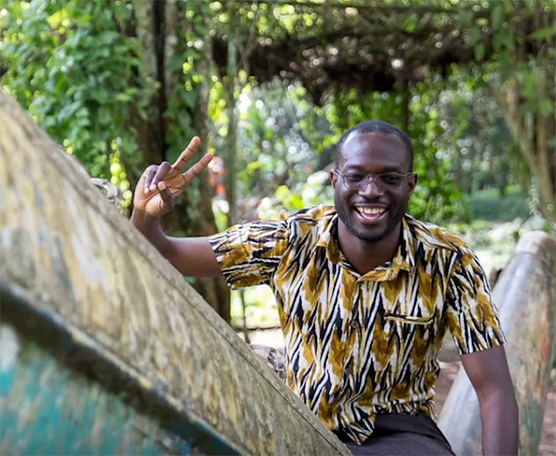
Kwabena Opoku-Agyemang is academic director for Ghana: Africa in the 21st Century. And although he’s relatively new to the program, SIT is not new to Kwabena. His mother was an SIT academic director before him, so, SIT students have always been a presence in Kwabena’s life.
Today, he holds a master’s degrees from the University of Ghana and West Virginia University, and a PhD from West Virginia University in English with a focus on African electronic literature. In addition to his work with SIT, he teaches at the University of Ghana.
My interest was how people use African digital creative expression in [digital] ways, but also, of course, if you’re looking at Africa, oral tradition and oral literature are very significant portions of African culture.
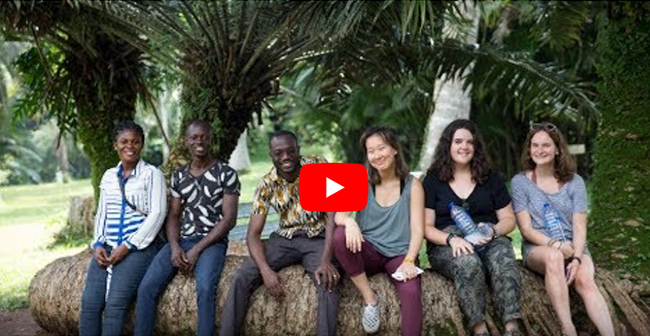
In this video, he talks about why Ghana is a great place to rethink ideas about Africa and how, by living and studying in Ghana, you’ll develop a critical perspective on mainstream representations of Ghanaian and African society.
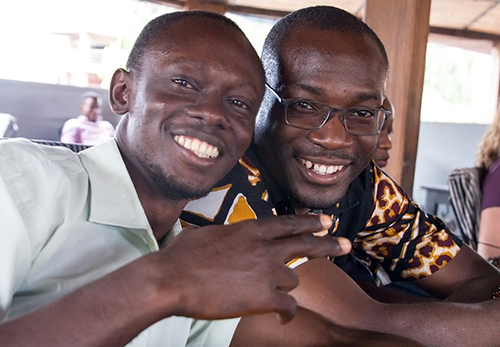
… one of the mistakes that a lot of people make is they think Africans simply consume digital technology.
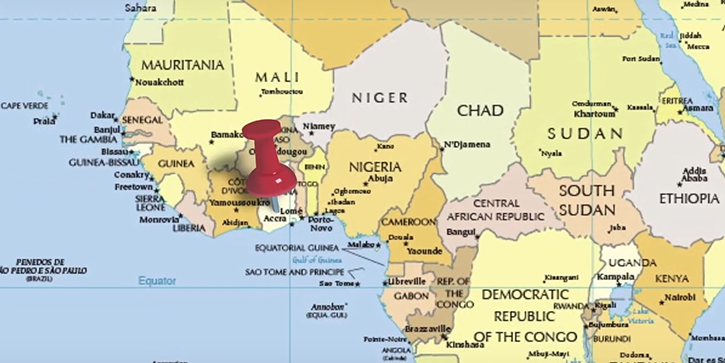
… typically Americans have this idea of Africa or Ghana based off what they watch on CNN or some major mainstream media. And in the reverse … the idea that Ghanaians have about America is also based off of Hollywood movies.
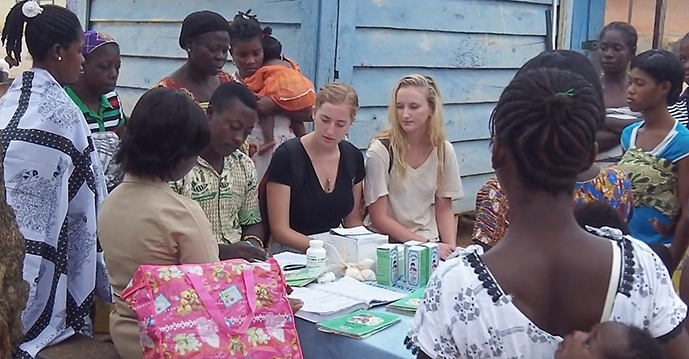
… when they come to Ghana they will see that, yes, there are some of the stereotypes hold true to an extent. After all, stereotypes are not necessarily wrong. The problem with a stereotype is you take that single truth and make it to represent everybody else.
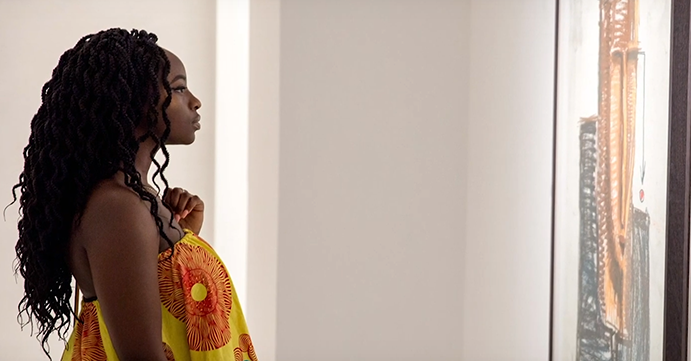
So they will see some of the things that they’ve seen on CNN … but they’ll realize that that’s not the only thing, and then they will see that people are as normal as they are. They have the same anxieties. They have the same strengths. They have the same worries. They have the same things that they find interesting. And they will converge and diverge on different points.
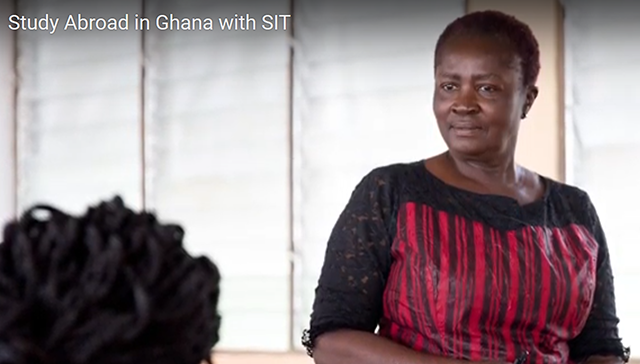
Ghana has so much to offer in terms of both formal and non-formal educational opportunities.
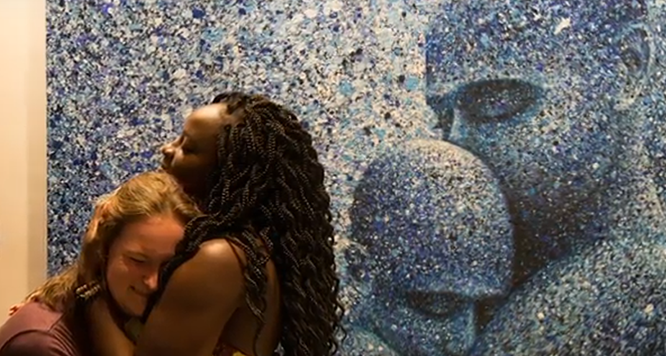
They will learn how different people communicate cultural norms, and how some of the things that they are used to will be challenged just by staying with another family, another culture. The homestay [family] will also learn from these American students as well … both will teach each other, and that, I think is the beauty of experiential learning.
Juliana, who is affectionately known as Nana Ama, has worked with SIT since 2011. She has a certificate in catering and participated in an international exchange program where she spent six months in Dingan, China. She loves to sing and cook.
Thelma was born in Takoradi and grew up in Obuasi, a mining town that is responsible for most of the gold that Ghana exports. She got her PhD in pharmacology from the University of Cambridge in the United Kingdom after earning her undergraduate and master’s degrees in pharmacy from the Kwame Nkrumah University of Science and Technology in Kumasi. She teaches in the School of Pharmacy at the University of Ghana and enjoys reading and writing.
Dr. Opoku-Agyemang holds a PhD in English literature from West Virginia University, where he also taught undergraduate courses in the Department of English. His research interests revolve around African literature, and he has authored publications that have focused on African electronic literature, video gaming, literature and gender, and oral literature. He teaches various undergraduate and graduate level courses in the University of Ghana’s Department of English, where he enjoys mentoring and interacting with students.
Courses Taught
Urban Cultures, Social Innovation, and the Afro-Chic
Sankofa: Cultural Legacies and Afro-Futures
Research Methods & Ethics
Select Publications
Opoku-Agyemang, K., & Osei, E. A. (2023). Nnedi Okorafor’s Africanfutures, Sankofa, and the Echoes of Pan-Africanism. Global Africa, 3, 253-265. [DOI: https://doi.org/10.57832/kqn7-8w13]
Opoku-Agyemang, K. (2023). Orality, Experiential Learning, and Decolonizing African Literature at the University of Ghana. In A. Quayson & A. Mukherjee (Eds.), Decolonizing the English Literary Curriculum (pp. 214-235). Cambridge University Press.
Opoku-Agyemang, K. (2023). Digital Cities and Villages: African Writers and a Sense of Place in Short Online Fiction. Journal of African Media Studies, 15(2), 217-229.
Opoku-Agyemang, K., & Amissah-Arthur, J. B. (2023). From Oral To Digital And Back: Adinkra Symbols and Kweku Ananse On YouTube. In T. Ghosal (Ed.), Global Perspectives on Digital Literature (pp. 181-195). Routledge.
Opoku-Agyemang, K. (2022). Contemporary and Historical Slavery in West African Digital Literature. In L. Murphy (Ed.), Cambridge Companion to Slavery in Global Literatures (pp. 62-77). Cambridge University Press. [DOI: https://doi.org/10.1017/9781009070928]
Opoku-Agyemang, K., & Opoku-Agyemang, A. (2022). Flash Fiction Ghana and Popular Culture: An Overview. In G. Musila (Ed.), Routledge Handbook of African Popular Culture (pp. 168-184). Routledge. [DOI: https://doi.org/10.4324/9781003080855-9]
Opoku-Agyemang, K., & Orfson-Offei, E. (2022). ‘These broke guys have a lot of energy’: Binaries and Male Anxiety in Ebony’s “Sponsor.” Kairos: A Journal of Critical Symposium, 7(1), 7-22.
Opoku-Agyemang, K., & Yerima-Avazi, D. (2021). ‘Sometimes life begins when marriage ends’: Hybridity and Female Empowerment in Adichie’s Purple Hibiscus and Americanah. Research in African Literatures, 52(3), 122-138. [DOI: https://doi.org/10.2979/reseafrilite.52.3.07]
Opoku-Agyemang, K. (2021). ‘This is embarrassing and insulting’: Flash Fiction Ghana and Transgressive Writing. In P. Ugor (Ed.), Youth and Popular Culture in Africa: Media, Music, and Politics (pp. 188-207). African Studies Series. [DOI: https://doi.org/10.2307/j.ctv1jpf259.11]
Opoku-Agyemang, K., & Thiam, C. (2021). V. Y. Mudimbe: The Philosopher-Poet. In A. Adebajo (Ed.), The Pan-African Pantheon: Prophets, Poets, and Philosophers (pp. 422-433). Manchester University Press. [DOI: https://doi.org/10.7765/9781526156839.00038]
Opoku-Agyemang, K. (2020). Flash Fiction Ghana, African Digital Literature, and Imagining Domestic Relationships. Postcolonial Text, 15(3&4), 1-18.
Select Presentations
Opoku-Agyemang, K. (2023, September 26). Rural/Urban Spaces, African Digital Literature, and Popular Culture. Presentation at the African Urbanities Project ‘Summer’ School.
Opoku-Agyemang, K. (2023, January 5-8). “Orality, Experiential Learning, and Decolonization: University of Ghana as Case Study.” Presentation at the Modern Language Association Conference, San Francisco, USA.
Opoku-Agyemang, K. (2022, December 15). Moving Forward with Africa’s Young People, or the Digital Sankofa. Presentation at Point Sud, University of Ghana, Ghana.
Opoku-Agyemang, K. (2022, November 17-19). Roundtable: Working with the Archives in the Digital Age. Presentation at the African Studies Association Conference, Philadelphia, USA.
Opoku-Agyemang, K. (2022, October 27-29). “Ghanaian Digital Forms.” Presentation at the Global Ghana: In Search of Africa’s Black Star Conference. University of Ghana, Accra, Ghana.
Opoku-Agyemang, K. (2022, July 18-20). “Critic, Reading, Writing: Ato Quayson as Digital Icon.” Presentation at the Ghana Studies Association Conference, Tamale.
Opoku-Agyemang, K. (2022, June 21-25). Book Panel: Discussion of Cultural Netizenship: Social Media, Popular Culture, and Performance in Nigeria by James Yeku. Presentation at the Lagos Studies Association Conference, Online.
Opoku-Agyemang, K. (2022, May 18-21). “African Literatures and the Digital Humanities (GSCALA Panel 1).” Presentation at the African Literature Association Conference, Online.
Opoku-Agyemang, K. (2022, May 4-10). “Framing Electronic Literature through an African Lens: Ghanaian Perspectives.” Presentation at the Global Initiative of Academic Networks: Digital Literatures and Literatures in Digital Conference, Online.
Opoku-Agyemang, K. (2021, November 22-25). “Mapping African Electronic Literature: The Case of Ghana.” Presentation at the African Electronic Literature Alliance International Workshop Conference, Lagos, Nigeria; Fes, Morocco; & Online.
Opoku-Agyemang, K. (2021, September 15-24). “Rethinking Responsible Political Engagement.” Presentation at the Kwame Nkrumah Pan-African Intellectual Cultural Festival, Online.
Opoku-Agyemang, K. (2021, September 6-8). Roundtable: Discussion of African Literature in the Digital Age by Shola Adenekan. Presentation at the Eastern African Literary and Cultural Studies Conference, Moi University, Eldoret, Kenya.
Current Research Interests
African Electronic Literature
Race and Positionality in Study Abroad Contexts
African Studies
Digital Humanities
